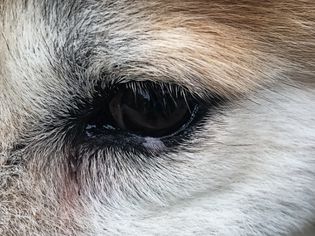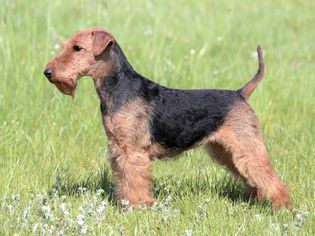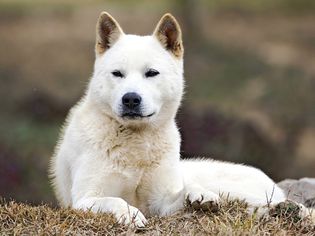Pomchi: Dog Breed Characteristics & Care
They say that “big things come in small packages”—and that’s definitely true of the Pomchi. Pomchis are a cross between a Pomeranian and a Chihuahua. These hybrid dogs are teeny-tiny, typically weighing less than ten pounds. Pomchis may be small, but they usually have big personalities. These outgoing dogs make ideal companions for city-dwelling pet parents who live in apartments and condos. But Pomchis are adaptable enough to thrive just about anywhere.
If you’re thinking about bringing home a new four-legged friend, here’s what you should know about the Pomchi.
Breed Overview
Group: Hybrid
Height: 6-9 inches
Weight: 3-7 pounds
Coat: Varies
Coat color: Any and all
Life span: 12 to 15 years
Temperament: Sassy, playful, outgoing
Hypoallergenic: No
Characteristics of the Pomchi
As with other hybrid breeds, Pomchis inherit a mix of characteristics from both parents. Pomeranians and Chihuahuas are both known for being sassy, affectionate, and courageous—a winning combination of traits that get passed down to the Pomchi, too.
Though they may be dainty, don’t let the Pomchi’s diminutive stature fool you. Like their parents, these dogs are spunky, bold, and vocal—they know what they want and are not afraid to ask for it. They are affectionate with their human family members but may be skeptical around strangers and unfamiliar animals. Proper socialization, especially from a young age, can help with this.
Pomchis are highly adaptable little dogs who can live just about anywhere, including small spaces like townhomes, condos, and apartments. They also make great travel buddies, provided they’re introduced to new adventures—like car rides and flights—slowly and with lots of positive reinforcement. They can learn to get along with children and other household pets, just be sure to remind kids to be careful with these dainty, delicate dogs. And remember to look before you step, as Pomchis are often underfoot and can be easy to overlook.
| Affection Level | High |
| Friendliness | Medium |
| Kid-Friendly | Medium |
| Pet-Friendly | Medium |
| Exercise Needs | Medium |
| Playfulness | High |
| Energy Level | Medium |
| Trainability | High |
| Intelligence | High |
| Tendency to Bark | High |
| Amount of Shedding | Medium |
History of the Pomchi
As with other designer breeds, the Pomchi’s origin story has been lost to history—it’s not clear who decided to breed a Pomeranian with a Chihuahua for the first time, nor when or where. However, the histories of the Pomchi’s parent breeds are well-documented.
Pomeranians hail from Germany and Poland, where hundreds of years ago breeders began developing smaller descendants of Arctic sled dogs. Over the years, Pomeranians got smaller and smaller until they eventually settled on their current size.
Chihuahuas, meanwhile, were likely developed by the Aztecs in ancient Mexico from a bigger ancestor called the techichi. Their name comes from the Mexican state of Chihuahua, where Americans first discovered these feisty dogs in the mid-1800s.
The American Kennel Club does not recognize Pomchis as an official breed, but the American Canine Hybrid Club does. Pomchis also go by other names, including Chipoms, Pomahuahuas, and Chiranians.
Pomchi Care
Exercise
Little dogs need exercise, too. Though you might be tempted to carry her under your arm everywhere you go, your Pomchi also needs to run around on her own four paws. Pair short walks around the neighborhood with playtime back home, as Pomchis absolutely adore games and toys. Interactive puzzles are also a great way to keep your Pomchi mentally sharp.
If you’ve never had a tiny dog before, you might not realize that small pups like Pomchis are easy targets for hungry predators. On walks, watch for birds of prey and larger predators like mountain lions and bobcats. And always supervise your Pomchi when she’s outside off-leash.
Grooming
Since Pomchis are a hybrid breed, their coats can be a bit of a grab-bag—some may have long fur, while others may sport a shorter ‘do. It just depends on their genetics. Overall, though, they tend to be low-maintenance pups who don’t need much special attention. Gentle brushing, baths and ear-cleanings when necessary, and periodic nail trims will keep your Pomchi looking and feeling her best.
Pomchis, like other small dogs, can be susceptible to dental issues, so it pays to get in the habit of brushing her teeth every night before bed. Reward her with dental chews to keep her breath fresh in between brushings.
Because of their parentage, Pomchis are prone to tear stains beneath their eyes. You can gently wipe away any discharge with wipes or remover combs.
Keep your Pomchi warm in the winter with dog sweaters and jackets, especially if you live in a place with cold, snowy winters.
Training
Pomchis are naturally smart and eager to please their human owners. With positive reinforcement training, they can quickly and easily learn standard obedience commands, as well as more complex tricks. Each dog is different, so you’ll have to spend some time figuring out what motivates your Pomchi the most, whether it be treats, praise, or toys.
Socializing your Pomchi early and often will help her get used to meeting new humans and other dogs. Attending group classes is a great way to work on socialization and training at the same time.
Common Health Problems
Pomchis tend to live long, happy lives. They’re generally healthy, but they may inherit some of the common health issues of Pomeranians and Chihuahuas. These include:
- Patellar luxation (dislocated kneecaps)
- Collapsing trachea
- Hydrocephalus
- Hypoglycemia (low blood sugar)
- Heart conditions, including congestive heart failure
- Eye problems, including progressive retinal atrophy
- Periodontal disease
- Legg-Calve-Perthes Disease
- Hip dysplasia
- Hypothyroidism
- Seizures
Diet and Nutrition
Pomchis will need the right balance of protein, carbs, fat, vitamins and minerals. Your veterinarian can recommend a dog food brand, or you can try out a few until you find one your Pomchi loves. Depending on your skills in the kitchen, you may even want to make homemade meals.
Since they’re tiny to begin with, Pomchis can easily become overweight—at this size, every extra calorie counts. Treats are handy for rewarding your Pomchi’s good behaviors but should only make up roughly 10% of her daily caloric intake. Regular exercise and playtime sessions can also help keep your Pomchi at her ideal weight, while promoting heart health and toning her tiny muscles at the same time.
Where to Adopt or Buy a Pomchi
Since Pomchis are a designer breed, you’ll most likely have to buy one from a breeder (though you may find one at your local animal shelter or rescue). Since there’s no official breed standard or national club for these dogs, it’s especially important to do your homework and seek out a reputable breeder.
Breed Overview
Pomchi Overview
Good for apartments and condos
Low-maintenance grooming
Easy to travel with
Vocal
Skeptical of strangers
Easily injured
More Dog Breeds and Further Research
Pomchis are rewarding pets for owners who are willing to socialize and train them. These adaptable pups don’t take up much space, which makes them a good option for people in small living spaces. But before you decide on a Pomchi, be sure to do your research. Owning a dog is a life-long commitment.
If you’re interested in similar breeds, check out:
- Pomsky
- German spitz
- Chinese Crested
There’s a whole world of potential dog breeds out there—with a little research, you can find the right one to bring home!
- Do pomchis bark a lot?
Pomchis have a tendency to be vocal, especially when they want to alert their humans to a potential threat (like a squirrel or the mailman). Training can help keep barking at bay.
Do pomchis need a lot of exercise?Many pet parents incorrectly assume that tiny dogs don’t really need to go on walks. But all dogs, including pomchis, benefit from physical activity and mental stimulation.
Do pomchis make good family dogs?With proper socialization and training, pomchis will live in harmony with kids and other pets. That said, parents should teach children to be extra gentle with pomchis, since they can become injured easily.
RECOMMENDED NEWS

Can Dogs Drink Milk?
It is not uncommon for owners to ask 'Can Dogs Have Milk?'. The answer is not a si...

Why Is My Dog Coughing?
Most dogs develop a cough at some point in their lives, and it can be difficult to determ...

Eye Boogers in Dogs
Eye boogers may look unpleasant, but almost all dogs will experience ocular discharge at ...

Welsh Terrier: Dog Breed Characteristics & Care
Welsh Terriers are medium-sized dogs from Wales with hard, wiry coats along with distinct...

Korean Jindo: Dog Breed Characteristics & Care
The Korean Jindo is a medium-sized, rare spitz breed. “Spitz” is a term that’s used...

10 Best Family Guard Dogs Who Are Naturally Protective
Owning a protective dog can give out peace of mind that someone is always watching out fo...






Comments on "Pomchi: Dog Breed Characteristics & Care" :